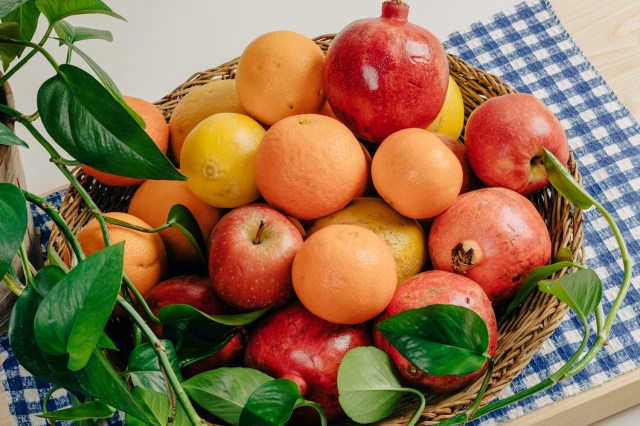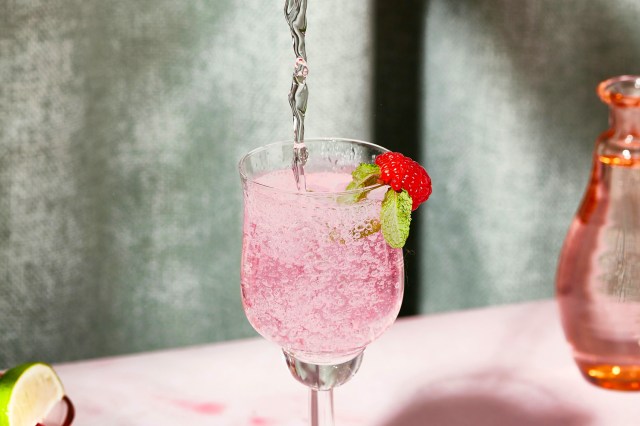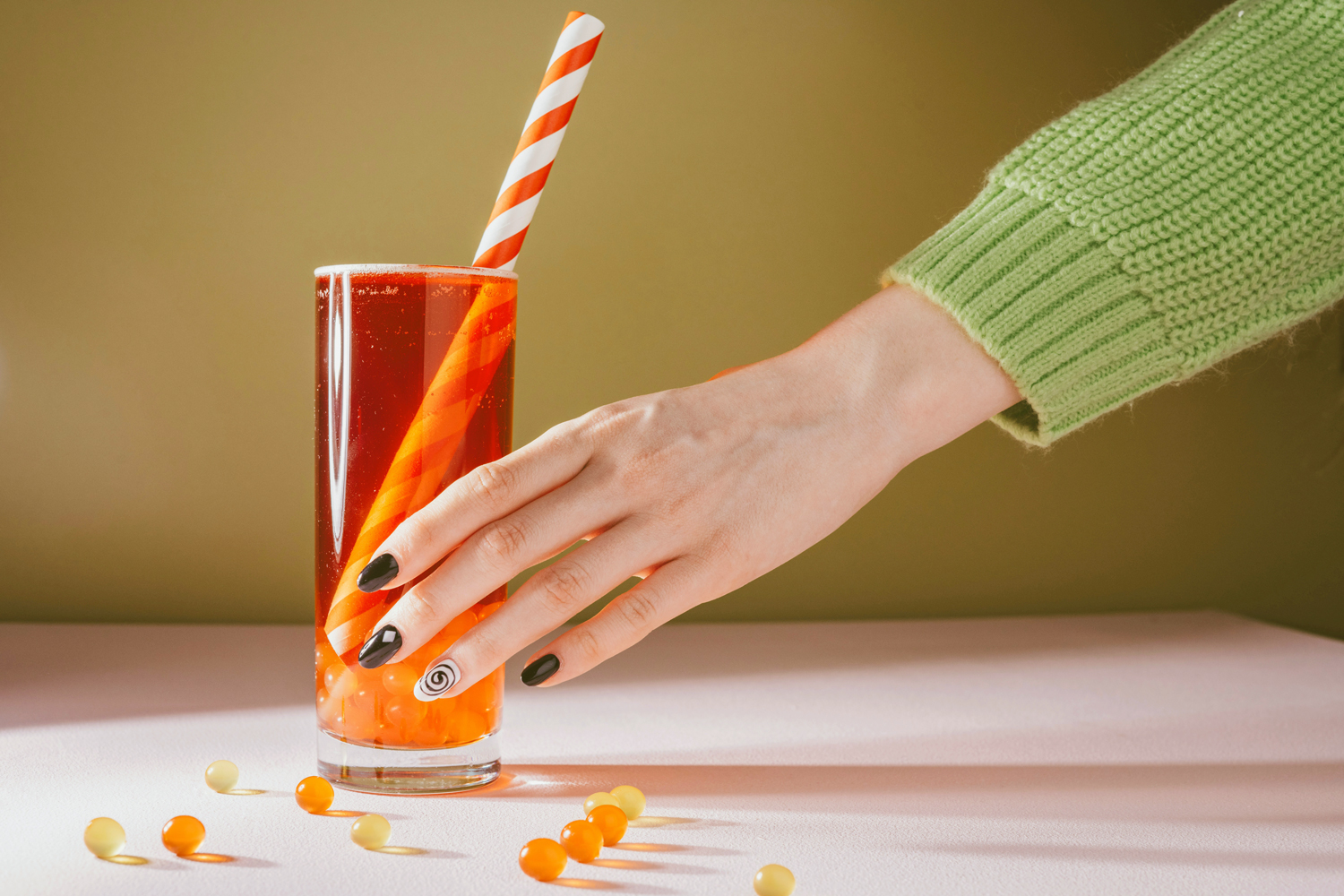We independently evaluate all recommended products and services. If you click on links we provide, we may receive compensation.
Over the past several years, a treasure trove of evidence has shown the key to mental and physical wellness may lie in bacteria — your gut bacteria, that is. According to the American Medical Association, your gut microbiome plays an important role in regulating your body’s inflammatory processes and can have an impact on everything from digestive processes to cognitive function.
This relatively recent discovery explains why prebiotic beverages such as Olipop and Poppi are suddenly everywhere, on shelves in both specialty stores like Erewhon and big-box retailers including Target. But can drinking prebiotic soda actually help support a healthy gut? And is it worth spending a few more dollars per can? To find out, we spoke with registered dietitian and gut health specialist Dr. Heather Finley, R.S., R.D.N., L.D. Read on for her take on the trend — and tips for incorporating these fizzy drinks into your wellness routine.

Prebiotics vs. Probiotics: What’s the Difference?
First, let’s get down to the basics of exactly what a prebiotic is. While they sound similar, probiotics and prebiotics are two very different things. Probiotics, per the National Institutes of Health, are microorganisms that can help support various bodily processes, including digestion, when consumed. These beneficial bacteria can be found in fermented and aged foods such as yogurt, miso, kombucha, and kimchi (to name a few). Prebiotics, meanwhile, aren’t bacteria at all, Dr. Finley explains; rather, they’re a type of nondigestible fiber that feeds those beneficial bacteria. Prebiotics are found in many fruits and vegetables, such as those that contain complex carbohydrates.
“Prebiotics play a crucial role in promoting gut health… by fostering bacterial diversity and enriching the microbiome,” she says. They also “facilitate the production of short-chain fatty acids,” which help support immune functioning and may protect against certain diseases. Per the Cleveland Clinic, prebiotics can:
→ Help support digestion
→ Support the production of neurotransmitters that help regulate mood
→ Boost immunity
→ Protect against some diseases
→ Enhance the absorption of certain essential minerals, such as calcium and phosphorus

Can Prebiotic Drinks Support Gut Health?
While eating a balanced diet is arguably the best way to ensure you’re consuming prebiotics, Dr. Finley says prebiotic sodas can be a great supplement, too. They’re particularly beneficial for those who may not otherwise consume prebiotic-rich foods — and with roughly 5 grams of sugar per can, they make for a great, health-conscious alternative to soda, too.
That being said, it’s important not to go overboard and drink can after can. “Prebiotic sodas may cause gastrointestinal discomfort in some individuals, especially if consumed in excess,” Dr. Finley says. She advises “starting with small amounts and gradually increasing [your] intake” to allow your body (and digestive system) plenty of time to adjust to the change.
The bottom line: While prebiotic sodas are generally considered a safe addition to your wellness routine, you’ll want to pay close attention to your body when introducing these drinks into your daily diet. And, as always, if you have any questions, consult your doctor — they should be able to provide more personalized advice based on your unique needs and goals.

Poppi vs. Olipop
Poppi and Olipop are not the only prebiotic sodas, but they are arguably the most popular on the market. While the two boast similar gut-friendly benefits, their ingredients (and nutritional stats) vary slightly.
Each can of Poppi contains just 25 calories, 5 grams of sugar, and 2 grams of fiber — the latter of which comes from organic agave inulin (the soda’s sole source of prebiotics). Poppi also contains organic apple cider vinegar (which is chock-full of natural probiotics), making this fizzy beverage a one-two punch for gut health.
Olipop, meanwhile, is made with “OLISmart,” a proprietary blend of prebiotic ingredients including cassava root fiber, marshmallow root, and Jerusalem artichoke inulin. Each can contains between 2 and 5 grams of sugar, 9 (!) grams of fiber, and 35 calories.

Tips for Maintaining a Healthy Digestive System
In addition to swapping your midday Coke for a low-sugar prebiotic pop, here are some things you can do to support a healthy gut:
- Eat a diverse diet.
It may seem pretty obvious, but maintaining a balanced diet is one of the best things you can do to support your gut health. You don’t necessarily have to stick to the food pyramid (many experts say it’s flawed, anyway), but it’s a good idea to prioritize whole foods, such as fruits, vegetables, whole grains, lean protein, and minimally processed dairy products including plain yogurt and cheese. Fiber is especially important for gut health. Just be wary of overdoing it — too much at once can cause gastrointestinal discomfort.
- Exercise.
A 2017 study published in Oxidative Medicine and Cellular Longevity found that exercise can help support gut health by improving microbiotic diversity, strengthening the gut’s barrier function, and even stimulating the development of microorganisms that can help protect against digestive diseases. If you’re not one for the gym, that’s OK — exercise can encompass nearly anything from dancing to swimming to taking a brisk walk around the neighborhood. For the best health-boosting results, we suggest following the Center for Disease Control’s guidelines and aiming for 150 minutes of moderate activity per week.
- Limit your alcohol intake.
We love a cold glass of rosé as much as anyone, but research shows the habit can lead to inflammation and throw your natural gut balance out of whack. If you need something to unwind at the end of a long day, consider whipping up a sleepy girl mocktail — or just crack open a prebiotic soda and pour the gut-supporting elixir into your fanciest wine flute.
This article is for general informational purposes only.
Affiliate Disclaimer Medical Disclaimer












 Unique Beauty is free for all users.
Unique Beauty is free for all users.